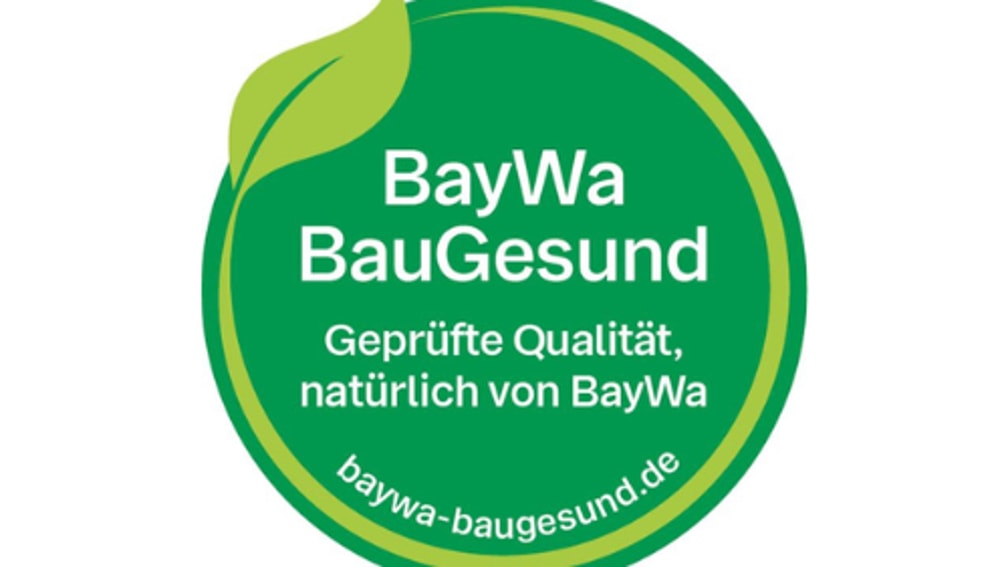
Sustainability Initiatives
BayWa Sustainability Initiatives in the Area of Building and Housing
The Construction segment covers the company's demand for building materials and solutions for energy-efficient construction and renovation.
Das BauGesund Seal
In 2018, a separate orientation guide was launched for the labeling of building materials to help customers select and combine the right products. Only products that pass the internal inspection process are awarded the BayWa BauGesund seal, which recognizes emission-tested building materials in order to reduce indoor pollution while maintaining energy efficiency. As part of this, important independent product certifications and test reports are evaluated before the seal is awarded by a BayWa expert. The long-term goal is to consolidate healthy building as a standard in the construction industry in order to create healthy living space for generations. Especially in times of more home office, one's own four walls should be planned and implemented with great care in terms of emissions.
Future-oriented Housing
A modern, bright living atmosphere is combined with energy efficiency and sustainability, setting standards for intergenerational living: The foundation stone has been laid for the "NOVUM" construction project in Burgkirchen a.d. Alz. A total of 45 residential units are being built, 13 of which are barrier-free and age-appropriate, as well as day care for senior citizens, a children's playground, landscaped indoor and outdoor areas and an underground parking garage. The complex thus creates forms of living for different phases of life and connects generations. Environmental and climate protection have also been taken into account: KfW Efficiency House 55 energy standard, self-generation of electricity through photovoltaics, green roofs, climate-controlled ceilings and pellet heating. As a project partner, BayWa AG is contributing the sustainable energy concept and will take over the subsequent energy management for the entire building via a contracting agreement.
The Future of Construction: The Multi Park Schrobenhausen
Building is not just building - a construction project in Schrobenhausen is proof of this. Plapperer Projekt GmbH, a joint venture between the building contractor Michael Plapperer and BayWa AG, is constructing the Multi Park, a residential and commercial park that will set an example for the region. Covering an area of over 10,000 square meters, the Multi Park will comprise six buildings for residential and commercial units whose cooling, heating and electricity will be generated entirely from renewable energies. The exclusive use of renewable energies means that the construction project has a lower environmental impact. In addition, the Multi Park is being built according to healthy living criteria. This means good, low-emission indoor air for residents and users and an even more valuable property for investors.
Prefabricated Timber Construction Modules
Tjiko GmbH, in which BayWa AG holds shares, produces industrially prefabricated bathroom modules in timber construction. The customizable complete bathrooms can be assembled and connected on the construction site within 120 minutes. This shortens the construction time and relieves cities of construction noise and dust pollution. In addition, the wood used binds emissions that remain out of the environment for the entire service life of the modules. Industrial production improves the working conditions of the craftsmen and enables precise planning, resulting in less waste than on the construction site.



